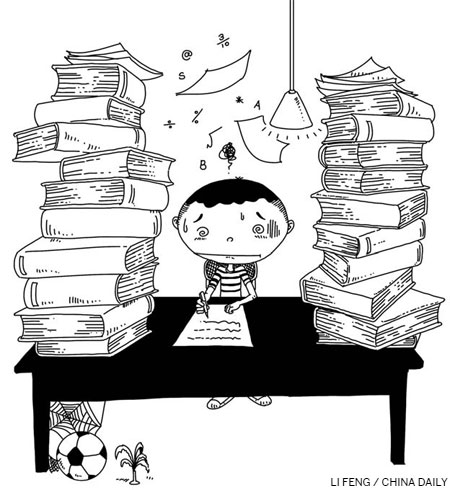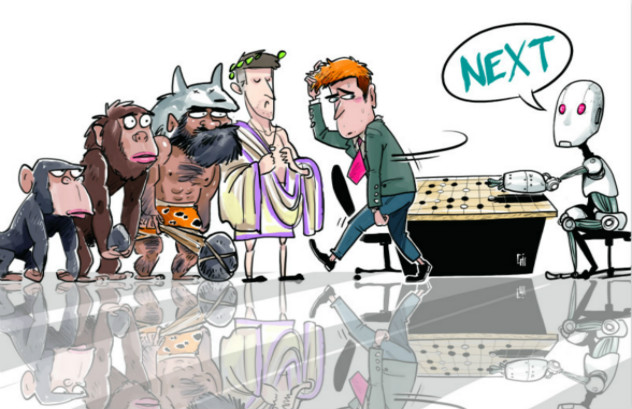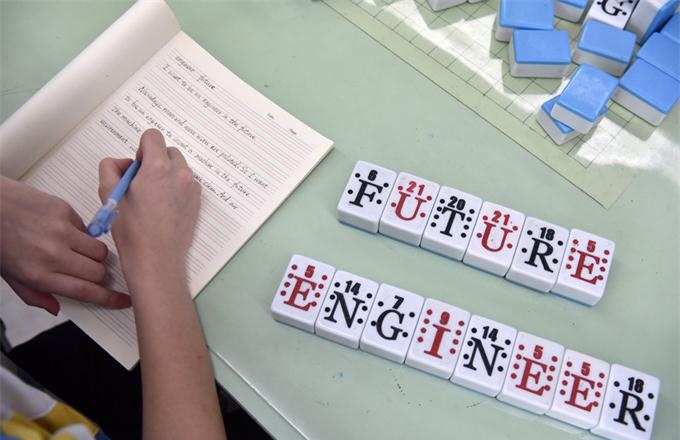A social problem on moral grounds

The suspected involvement of famous singer Li Shuangjiang's 17-year-old son in a gang rape should be a warning for Chinese parents and schools that give priority to "intellectual education" over moral education. The boy has received the best school education in Beijing and "excelled" in singing and calligraphy but has been found wanting in moral values.
Good scores in exams and fine performances in extra-curricular activities alone do not make a good student. In fact, the undue emphasis on exams and scores has pitted intellectual education against moral education and created a big problem for society.
Morality is a core human element and the basic requirement for a person to be part of society. But the moral education that students get from their families, teachers and society is, to a large extent, confined to sermons that fail to have an impact on their characters. The times have changed, so have teenagers' interests and tastes. So instead of delivering lectures on morality, parents and teachers have to become examples of moral behavior. The problem, however, is that compared with intellectual education, imparting moral education is a painstaking and time-consuming affair, which many parents consider a waste of time for their children.
Influenced by the deep-rooted exam-oriented mentality, which even younger students and open-minded parents cannot discard, schools and families both lay greater stress on education that will get children through exams, especially the national college entrance exam, and help them make money and lead a materially satisfactory life.
Most students today are only interested in securing high scores even when it comes to the moral education course that is mandatory in almost every Chinese university. Very few see the course as a guideline for ethical behavior.
Take the example of Liu Haiyang, who was a senior student at Beijing's Tsinghua University, one of the most prestigious institutions of higher learning in China, in 2002. Not once, but on two occasions, Liu carried acid to the Beijing zoo and threw it on bears leaving them scalded. Liu was an excellent student and had secured high scores in the national college entrance examination but his actions proved that his parents and teachers had failed to teach him the basic principles of social conduct.
Some single-child families tend to pamper their children and prevent them from taking part in activities aimed at cultivating good moral habits. I know of a girl who was forced by her parents to bury herself in books during weekends, holidays and even family reunions. Her mother always found an excuse to stop her from going on excursions or taking part in voluntary work arranged by the high school. She even prevented the girl from clearing the dinner table or doing the laundry. The mother's only concern was how to help her daughter get high scores in exams.
It's a pity that some parents still fail to understand the importance of children taking part in activities that help develop their social and moral values.
In a vanity-oriented education system, getting admission to a good school and university has become the major indicator of success. The focus on scores is not only killing the creative faculties of children, but also depriving them of the chance to develop into complete human beings.
It is time parents and teachers realized that intellectual and moral education are interconnected and supposed to coexist in harmony. Most parents' major concern is to help their children clear exams with high scores and enroll in "good" colleges. In the process, they ignore the moral and physical health of their children.
Joint efforts are needed from schools, parents and society as a whole to inculcate students with moral values. In a rapidly changing society, it is difficult for parents to explain to their children the importance of moral values without a proper grounding in moral education. Children require satisfactory answers to new and complicated incidents, for which teachers and parents have to spare time and effort.
Schools have to take concrete and effective measures to improve the level of moral education imparted to students. Textbooks should be modified to keep pace with the changing times and cater to students' interests. Different teaching methods, such as the Internet, books and films could be used to enhance students' moral knowledge.
Traditional Chinese festivals are also good occasions to teach children the importance of family, society and moral values. For example, Tomb Sweeping Day can be used to explain the importance of love for relatives and patriotism. Similarly, Chongyang Festival can be used to tell children why it is important to respect elderly people.
Since the family is the first school a child attends and parents the first teachers it encounters, parents and family play the most important role in children's moral upbringing. Parents should be role models for their children and teach them to tell right from wrong in everyday life and help develop a code of conduct that they should follow for the rest of their lives.
The author is a reporter with China Daily.
Email: xiaolixin@chinadaily.com.cn.
(China Daily 03/13/2013 page10)

























